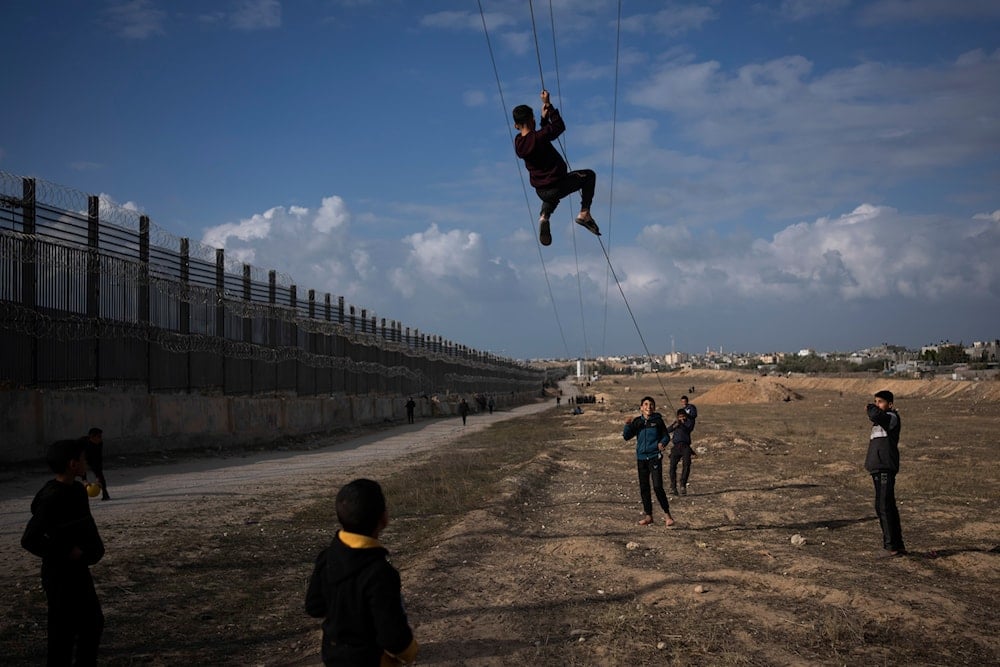Talks at impasse: Egypt rejects Israeli presence on Philadelphi Axis
Cairo has already communicated its position to all relevant parties.
-

Palestinians displaced by the Israeli bombardment of the northern Gaza Strip play next to the border with Egypt, in Rafah, along the Philadelphi corridor, southern Gaza, Sunday, Jan. 14, 2024 (AP Photo/Fatima Shbair, File)
Egyptian broadcaster Al-Qahera News reported on Monday, citing a high-level source, that Egypt is refusing to accept an Israeli military presence at the Rafah crossing and the Philadelphi Axis on the border Palestinian-Egyptian border.
The broadcaster added that Cairo has already communicated its position to all relevant parties.
Read more: Cairo negotiations 'did not result in any apparent progress': Source
Mediation efforts have shifted focus following the introduction of new conditions by Israeli Prime Minister Benjamin Netanyahu, some of which include the establishment of a permanent Israeli military presence in the Rafah area.
As a result, the focus of diplomatic talks has moved away from direct engagement with Hamas and towards broader discussions involving security arrangements along the Egyptian-Palestinian border, particularly with Egypt over the Philadelphi Corridor.
Hamas reaffirms ceasefire demands
Following the departure of the Hamas delegation from Cairo yesterday, Hamas official Izzat al-Rishq released a statement outlining the negotiation outcomes, saying: "The Hamas delegation left Cairo tonight after meeting with Egyptian and Qatari mediators, who updated them on the latest negotiation results."
Al-Rishq said that the Hamas delegation demanded "Israel" adhere to the terms agreed upon on July 2, which are based on US President Joe Biden's speech and a UN Security Council resolution.
He reaffirmed Hamas's readiness to implement these agreements, provided they protect the supreme interests of the Palestinian people and halt the ongoing aggression.
"Hamas reiterates its readiness to implement" the Biden plan, Rishq said.
Al-Rishq further reiterated several key conditions for any potential agreement. He stated that Hamas insists on a permanent ceasefire, the complete withdrawal of Israeli forces from the Gaza Strip, the unrestricted return of displaced residents to their homes, comprehensive relief and reconstruction efforts, and a serious prisoner exchange deal.
Read more: Egyptian president warns of new front opening in Lebanon

 2 Min Read
2 Min Read










